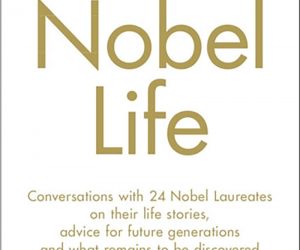 Your thoughts can snatch you a PhD—and win you a Nobel prize. Don’t believe me? According to Dr. Caroline Leaf, “We can use our thoughts to improve our overall intellect, cognitive performance, and mental and physical well-being” (p. 19 of 321, 5%). And your thoughts can take you from F student to Einstein.
Your thoughts can snatch you a PhD—and win you a Nobel prize. Don’t believe me? According to Dr. Caroline Leaf, “We can use our thoughts to improve our overall intellect, cognitive performance, and mental and physical well-being” (p. 19 of 321, 5%). And your thoughts can take you from F student to Einstein.
But how?
Dr. Leaf says, “Today, most people can access vast amounts of information, yet few people know how to process this information and use it to be successful at school, work, and life” (p. 27 of 321, 6%). So, process info by personalizing it, by relating it to what matters most to you. A professor of mine taught on that premise, too. She related much of her curriculum to her life stories. So, whether at work or school, find every angle that relates your hard work to “giving back” to this world. Come graduate studies, you’ll thank me. That’s because graduate studies demand your thesis has meaning for the greater community. In graduate school, you’ll need to answer the question, “So what?”
The “So what?” question may be the unifying piece of your thesis. Dr. Leaf says, “When we gather information like puzzle pieces without putting the puzzle together, intellectual growth is stifled” (p. 28 of 321, 6%). Expertise helps us put the puzzle together while synthesizing new ideas. But expertise also takes us down the beaten path, blind to the pieces that ‘just don’t fit.’ Sometimes, a visionary with no background on a subject can pave new ideas, ones not yet tabled by the ‘experts.’ So, when toying with thinking outside the box, “we have to recognize that the ‘box’ is a figment of our imagination—we are as intelligent as we want to be” (p. 38 of 321, 10%).
So, how can you strengthen your brain for exciting new ideas? Academic theories such as left-right brain theory and learning styles theory aim to help us succeed academically, but even these theories need tweaking. For one, they seem too simple. For another, they fail to capture the individuality of the learner. Dr. Caroline Leaf questions the effectiveness of these theories: “Two neuromyths … that I have spent three decades teaching against are the left-right brain theory and the learning styles theory” (p. 31 of 321, 8%). For instance, did you ever feel like the label ‘visual learner’ didn’t capture you? I’m mostly a visual learner who ranks second as a kinesthetic learner. But get me touching and staring at human bones to figure out anatomy, and I’d bomb the test. Yet, I could’ve aced most any math exam. How visual is math anyway? When I did math, I disappeared from the visual world. Dr. Leaf suggests focusing more on personalized learning than on learning styles and left-right brain voodoo.
But maybe you can strengthen your mind by playing brain games? A waste of time, I always thought. One brain rehabilitation charity used logic puzzles to help restore people’s brain functioning. I wondered, though, wouldn’t the time of the “consumers” be better spent learning skills like math, physics, or logic—skills they can apply to furthering their education or careers? I’d hate to find myself stuck solving puzzles that held little relevance to real life. Dr. Caroline Leaf goes outside the box once more with her comment, “Research shows that the short-term memory and sensory skills developed in these so-called brain games do not necessarily develop deep thinking or meaningful cognitive skills that change behavior in ways that lead to success. These games do not improve the kind of intelligence that helps people intellectualize, reason, solve problems, or make wise choices” (p. 32 of 321, 8%).
So, how can you strengthen your mind? With your thoughts, of course. Dr. Leaf points out that “each thought has quantum energy and electrochemical and electromagnetic signals, which flow throughout your brain and body largely below the level of awareness in your nonconscious mind” (p. 38 of 321, 10%). So, I say, as a student, try to think nonstop about your studies. But do less worrying and more memorization, recall, and repetition. When you rehearse your studies—or hone your passions—you accelerate mastery. Dr. Leaf says, “I did some of the first neuroplasticity research back in the eighties, showing how intentional, deliberate thinking changes intellectual, cognitive, emotional, social, and academic performance” (p. 44 of 321, 12%).
And I’ll bet you lunch that you’ve got a Nobel prize in you. Whether you win a Nobel or not, I win the bet. Now how’s that for thinking outside the box?


